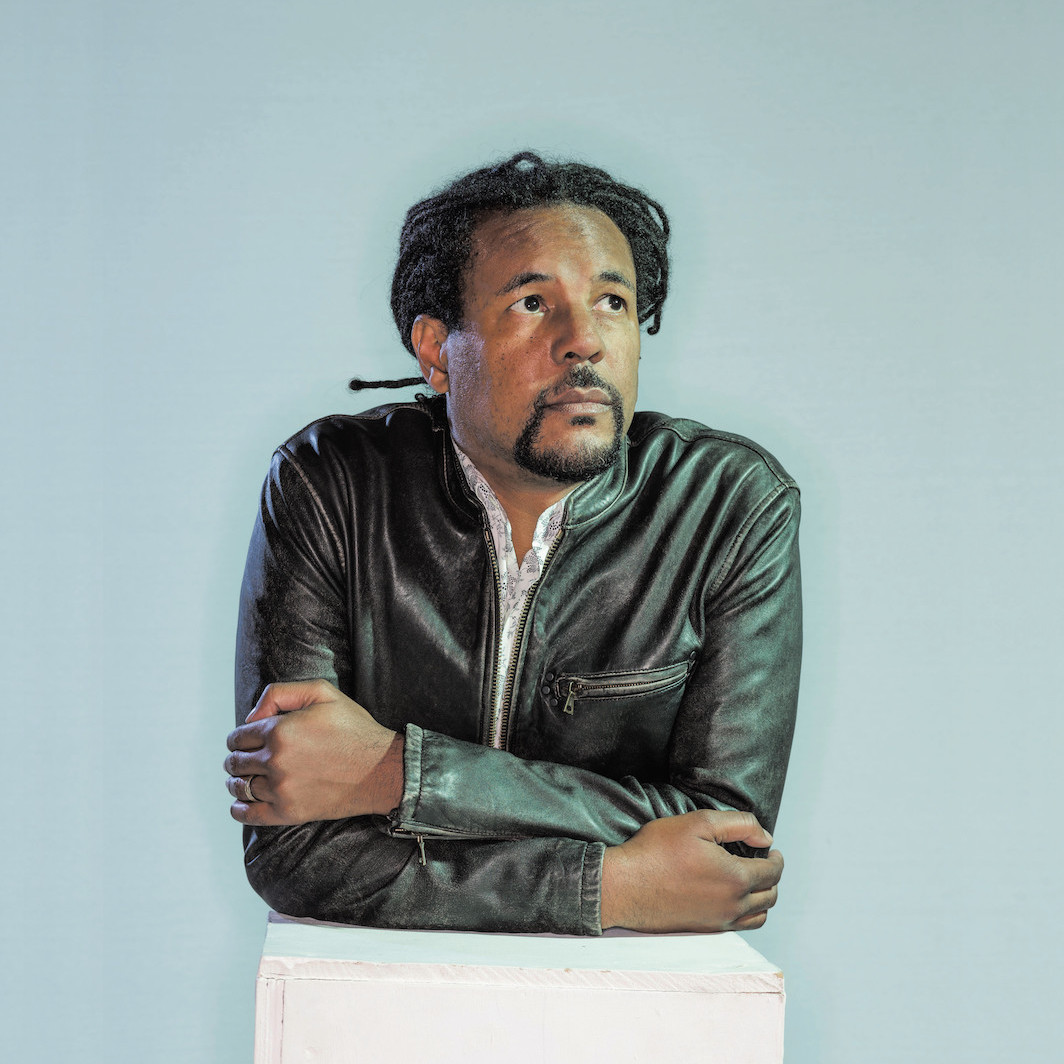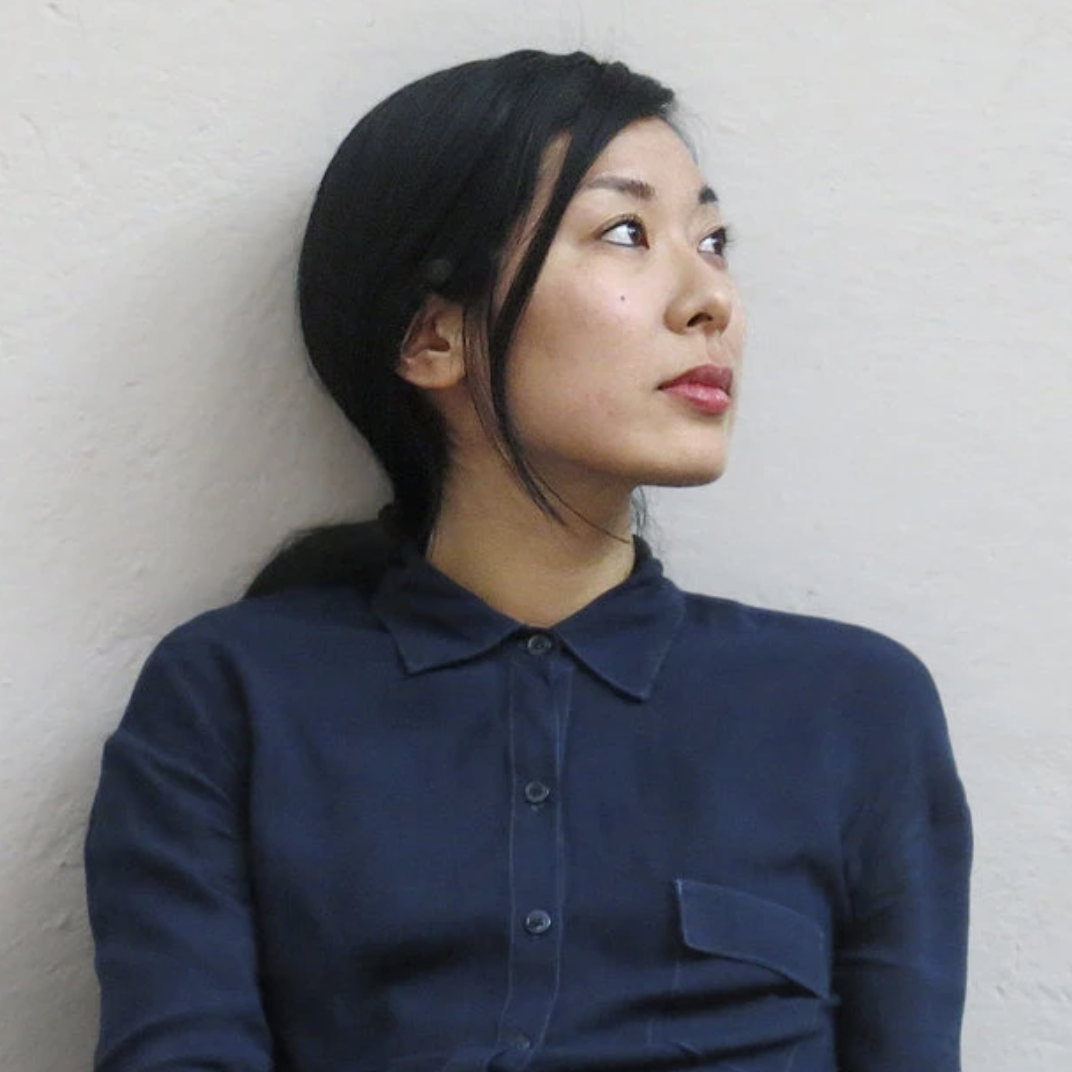Colson Whitehead. Photo: Wayne Lawrence At the New York Times, Alexandra Alter talks with Colson Whitehead about his latest novel, Harlem Shuffle, and his flexibility as a writer. “His heterogeneous style comes not so much from an effort to show his range but from a short attention span,” Alter writes. As Whitehead puts it, this “prevents me from getting bored—that’s the main thing . . . . Like, why can’t I just do a zombie novel? No reason, just do it. So, with this, can I do a heist novel? Yeah, sure. Why not?” For more on Harlem Shuffle,
Judith Butler. Photo: Verso Hours after publishing an interview with Judith Butler yesterday, The Guardian removed whole paragraphs of the interview, apparently “folding” under pressure from transphobic readers. In the removed section, Butler answered a question about the alliance between far-right groups and certain factions of feminism in part by denouncing trans-exclusionary radical feminists as fascists. As Emanuel Maiberg reports for Motherboard, “it is exceedingly rare for long passages to be cut from articles with such a cryptic update note, and is even rarer for a question-and-answer to be deleted from a high profile interview without any real explanation
Colson Whitehead, 2019. Wayne Lawrence The new issue of Bookforum is out today! Our fall-fiction package includes reviews of novels by Colson Whitehead, Joy Williams, Miriam Toews, Jonathan Franzen, Tao Lin, and Percival Everett, plus an interview with Asali Solomon. Also in the magazine: James Hannaham’s diary on Fernando Pessoa and flying; Charlotte Shane’s consideration of Maggie Nelson, freedom, and care; Daphne Merkin’s reassessment of the hated and celebrated D. H. Lawrence; and more. In The Baffler, Dana Kopel writes about working to unionize staff of the New Museum, and the museum unionization movement taking hold across the country:
Salman Rushdie. Photo: Syrie Moskowitz For the New Republic, Alex Shephard considers the possibility that Substack will repopularize serialized fiction, and finds it “highly unlikely.” Novelist Salman Rushdie is the latest high-profile writer to join the platform, but as Shephard notes, the author of Midnight’s Children seems more intent on using it as a blog—another supposedly outdated but resilient technology. The speculation about how books will change with the times is well-worn: “For years, people have been predicting that the internet would radically upend the future of literature and yet, stubbornly, literature has refused to change.” At Gawker, Charlotte
Lizzie Johnson. Photo: Scott Strazzante At The Nation, Emma Hager interviews Lizzie Johnson, one of the first American reporters to cover fire full-time, and the author of Paradise: One Town’s Struggle to Survive and American Wildfire, an examination of the 2018 Camp “megafire.” Terminology used to describe increasingly destructive fires has changed rapidly, Johnson notes: “There was the Thomas Fire in 2017, which was the biggest in state history, and it held that title for less than a year before the Mendocino Complex Fire toppled it. And then in 2020 we had the ‘gigafire,’ which was the first time
Sheila Heti. Photo: Sylvia Plachy At Literary Hub, Sheila Heti writes about the people who she trusts to read early drafts of her work and the importance of these relationships to her process: “It’s always important to show a work in progress to more than one person at a time, so that nobody’s opinion is too influential. What if you show it to only one person and they hate it? And you believe them! Or they love it? And you believe them! Better to send it to two, three or four people, so that you can situate the truth
Karl Ove Knausgaard. © Nina Rangøy For New York magazine, Torrey Peters interviews Karl Ove Knausgaard about his new book. The novel is Knausgaard’s first since his autofictional epic, My Struggle. The Morning Star is a departure from this work, Knausgaard’s version of a Stephen King novel. The author told Peters: “For me, literature is to try to reopen the things that are fixed . . . the things we have to fix for practical reasons, that are risky when they are unfixed. If it’s fixed, it’s easier — but that doesn’t only go for gender; that goes for
Marlon James. Photo: Jeffrey Skemp At the New York Times, Lauren Christensen profiles Sally Rooney, whose third novel Beautiful World, Where Are You will be published in early September. Rooney wrote the novel in part as a response to the fame her first two books brought her. “Rooney knows how many writers would kill to be in her position. But that’s her point: Everyone loses, except capitalism.” She was already at work on Beautiful World during a 2019 fellowship at the Cullman Center at the New York Public Library, where she focused on reading critical theory by Simone Weil,
Katie Kitamura. Photo: Martha Reta The Edinburgh International Book Festival is offering a hybrid program this year, with over 250 online events. This weekend, Jeremy Atherton Lin will discuss his new book Gay Bar; Katie Kitamura, author of the novel Intimacies, will give a talk and QA on “Familiarity and Contempt”; and Claire-Louise Bennett will talk about her second book, Checkout-19, with fellow novelist Elaine Feeney. Vice Media has instituted another round of layoffs. According to Lindsey Ellefson at The Wrap, Vice’s chief digital officer, Cory Haik, sent a memo to staff heralding promotions and growth at the company
Sigrid Nunez. Photo: Marion Ettlinger For the Paris Review Daily, Susan Choi writes about Sigrid Nunez’s 1995 debut, A Feather on the Breath of God, which is told in four parts. Nunez has described it as a work of autofiction, a term that, she told Choi, “she understands less with reference to such contemporaries as Rachel Cusk and Ben Lerner than to forebears such as Rilke and Proust.” Choi recalls her first encounter the “Chang” section of Nunez’s book: “Everything I read seemed to be a worse fit than before I’d ventured onto hyphenated ground, worse than my blithe
Anitra Budd. Photo: Nathan J. Kavile Anitra Budd will be the next executive director and publisher of Coffee House Press, starting in October. “Since my first day as an intern more than twenty years ago, Coffee House has changed the way I think about words, about art, and about what books can do in the world,” said Budd, who will head the press through its fiftieth anniversary year and build on programming initiatives. To celebrate the news, Coffee House Press is offering 30 percent off on all books through September 1. Sally Rooney is reportedly only doing one author
Matthieu Aikens. Photo: Kiana Hayeri The independent publisher Milkweed Editions has announced its new literary series Multiverse, which will be devoted to “different ways of languaging” and will be curated by neurodivergent poet Chris Martin. “Multiverse primarily emerges from the practices and creativity of neurodivergent, autistic, neuroqueer, mad, nonspeaking, and disabled cultures,” Milkweed stated. “The desire of Multiverse is to serially surface multiple universes of underheard language that might intersect, resonate, and aggregate toward liberatory futures.” The first book in the series, Hannah Emerson’s The Kissing of Kissing, will be out in April 2022. The literary magazine Granta has
Honorée Fanonne Jeffers. Photo: Sydney A. Foster The Community of Literary Magazines and Presses’s Lit Mag Adoption program offers discounted subscriptions of various publications to teachers and their students in order to help integrate lit mags into courses. Among the participating magazines and journals are A Public Space, Astra Quarterly Review, Kenyon Review, Ploughshares, and the Paris Review. If six or more students in a course registered in the adoption program subscribes to a single magazine, a publisher or editor will meet virtually with the class. The New York Public Library’s new permanent installation, the “Polonsky Exhibition of The
Eugene Lim. Photo: Ning Li Corinne Segal talks with the staff of Nightboat Books for Literary Hub’s Interview with an Indie Press series. Lindsey Boldt, editorial director tells Segal: “When it comes to selecting manuscripts for Nightboat, more than anything I want to be surprised. Next, I want to feel pleasure, but what surprises or pleases me may be different from what surprises or pleases my colleagues and vice versa. Knowing that we each have our specific biases, desires, and sense of personal and political stakes, we try to build in space for a variety of editorial sensibilities at
Kaveh Akbar. Photo: Hieu Minh Nguyen Craig Morgan Teicher interviews poet Kaveh Akbar for the Paris Review Daily. They discuss Akbar’s second collection, Pilgrim Bell, figuring out “how to train your instincts and then get out of the way,” and self-consciousness. Of the state of poetry, Akbar says, “I feel like a lot of people operate as if poetry is teetering on the brink of extinction, and it’s all of our jobs to sort of huddle around the final flame of poetry and defend it. I think it’s doing great.” Nathan J. Robinson, author of Why You Should Be
Claire-Louise Bennett. Photo: Conor Horgan At Vulture, Reeves Wiedeman lays out everything he and Lila Shapiro have uncovered about the scammer who has spent years impersonating publishing industry professionals over email in order to get early copies of book manuscripts. Wiedeman and Shapiro have gathered a lot of information—the thief’s “favorite emoticon was ;)”—but the culprit’s motives remain inscrutable. “Was the pointlessness the point?” Wiedeman wonders. “The one thing that seemed to tie all these tiny acts of deception together was a sense that the thief was in it for the pleasure of the act itself. Whoever they were—a
Janice Mirikitani, 1977. Photo: Nancy Wong. Poet Janice Mirikitani, a former Poet Laureate of San Francisco and cofounder of the social-service nonprofit Glide, has died at the age of eighty. When she was a child, Mirikitani spent time in a US internment camp for people of Japanese ancestry during World War II. The author of multiple poetry collection, Mirikitani also edited anthologies, and coauthored a nonfiction book about her work with Glide. San Francisco mayor London Breed remembered Mirikitani as “one of our city’s true lights. . . . She was a visionary, a revolutionary artist and the very
Leslie Jamison. Photo: Beowulf Sheehan Early in his governorship, Andrew Cuomo invited Robert Caro, biographer of Lyndon B. Johnson and author of The Power Broker, to the state capitol to talk about Robert Moses. As it turned out, Cuomo did most of the talking, sharing his admiration of Moses and regaling the author with his plans to “build big,” Shane Goldmacher writes in the New York Times. The governor then declared the meeting over. “It was an arrogant and angering thing to do,” Mr. Caro recalled in an interview. “To think I had given a day of my life
Kate Aronoff. Photo: Bold Type Books For this week’s Jewish Currents newsletter, David Klion talks with New Republic climate writer Kate Aronoff about the new IPCC report, and how major news outlets’ despairing coverage of its contents—while understandable—misses the “full picture” and can contribute to dangerous messaging. Aronoff outlines specific inaccuracies in such coverage and elaborates: “The reality, according to the IPCC, is that every 10th of a degree [of global warming] translates to tens of thousands of lives lost, so every little incremental step we can take to mitigate climate change matters a tremendous amount. There’s no point
Azareen Van der Vliet Oloomi. Photo: Kayla Holdread. Dolly Parton has announced that she’s writing a novel with James Patterson. Parton’s fiction debut is titled Run Rose Run and will have a companion album based on the characters and plot of the book. The New York Times is releasing a series of subscriber-only newsletters by authors including Tressie McMillan Cottom, John McWhorter, Kara Swisher, and more. According to Axios, at least eighteen Times newsletters will be for subscribers only beginning next week. At Guernica, an interview with the former United States poet laureate, Rita Dove. The author’s new poetry



















